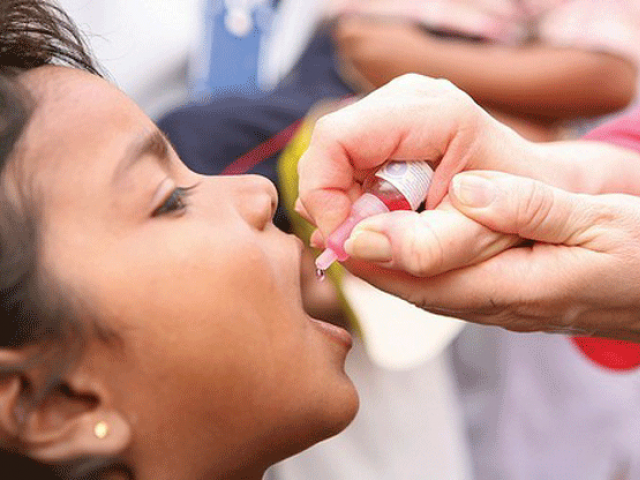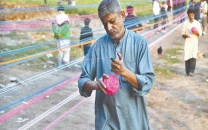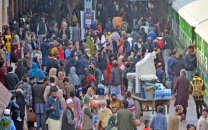WHO concerned over ‘low-performance’ of Pindi UCs
District officials plan five-day vaccination drive from Monday

The WHO expressed dissatisfaction with the performance of union counculs after the polio virus was detected in environmental samples collected from the Rawalpindi neighbourhood of Safdarabad. PHOTO:FILE
The World Health Organisation (WHO) expressed its dissatisfaction over anti-polio efforts in 34 union councils of Rawalpindi’s four tehsils, calling on officials to take greater initiatives and foster teamwork in their anti-polio campaigns.
The missive came as the poliovirus was detected in environmental samples collected from the Rawalpindi neighbourhood of Safdarabad.
In this regard, the district administration has taken a decision to revise their plan for an anti-polio drive in the locality.
The district committee for anti-polio campaigns met in the garrison city the other day. The meeting was chaired by the Rawalpindi Deputy Commissioner Dr Umar Jahangir and included District Health Officer Dr Uzma Hayat.
Polio and Pakistan
The latter gave details of their activities in the union councils termed as ‘low-performing’ by the WHO.
She said that the performance of all area in-charges and medical officers of Rawal Town’s five union councils has been reviewed.
Dr Hayat was hopeful that the upcoming five-day anti-polio campaign in the district will further improve the situation. She told the deputy commissioner arrangements for anti-polio campaigns have been completed.
Briefing about the arrangements for the vaccination campaign, she said that the drive will commence on 6 August and will be completed on August 10.
To conduct the drive, she said that 168 UCMOs and 405 area in-charges have been appointed. Moreover, 1,878 mobile teams have been created while 85 transit points have been identified.
Dr Jahangir said that combating polio was a collective responsibility and by getting rid of this disease would mean pushing Pakistan on the coveted list of polio-free countries.
He instructed that along with a micro plan for the upcoming anti-polio campaign, complete information on zero-dose children should be submitted. Moreover, at least three training sessions should be conducted for officials before the campaign gets underway, with special attention to those children who somehow failed to get polio drops, and on convincing parents to allow their children to be administered the vaccine.
Pakistan fails to achieve polio-free target in 2018
Moreover, he said cases must be lodged against those parents who refuse vaccination of their children and assured to provide complete cooperation from the district management in this regard.
Additional Deputy Commissioner (Headquarter) Saima Yonus, Assistant Commissioner (City), Chief Executive Officer Health Authority Dr Khalid Mehmood, Federal Monitor Dr Parvez, Deputy DHO Dr Mubbashir Hussain, WHO Coordinator Dr Sarwat, District Civil Defence Officer Sanjeedah Khannum, representatives of allied departments, deputy district health officers and officers of other concerned departments also attended the meeting.
The condition in Pakistan has considerably improved over the past four years. From a high of 306 cases reported in 2014, so far only three cases have been reported in the country so far this year.
All of the cases reported this year are from the Dukki district in Balochistan.
While no case has been reported from the twin cities of Islamabad and Rawalpindi in the past four years, cases have been reported from nearby areas including Chakwal with one case reported for successive years in 2014 and 2015.



















COMMENTS
Comments are moderated and generally will be posted if they are on-topic and not abusive.
For more information, please see our Comments FAQ